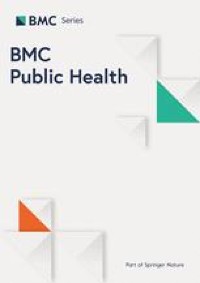Background Little is known about health-focused cannabis use purposes and their associations with risk for problematic cannabis use. This cross-sectional study examined three broad cannabis use purposes and association with risk for problematic use among young adult cannabis users who report using for > 1 health reasons. Methods Young adults completed an electronic survey as part of an ongoing study on substance use and health. Those who self-reported past 6-month use of ≥ 1 cannabis products—smoking, vaping, dabbing, eating, and blunts—were included in the analysis. Their purposes for use were coded into three categories: sleep, mental, and physical health. Problematic cannabis use (PCU) was measured with the three-level structure Cannabis Abuse Screening Test (CAST-3). Adjusted multivariable regression models were used to estimate use purposes associated with with problematic cannabis use at the p < 0.05 level. Results Participants (n = 954) were mostly female (63.94%) and Hispanic (54.93%). Mental health was the most endorsed reason (73.38%) for use among study sample. Among participants, 36.3% were classified as being at severe risk (CAST-3 score ≥ 8). There was a significant association between PCU risk and reporting cannabis use for physical health (p < 0.01), mental health, and sleep health (p < 0.01) purposes. Those who used cannabis for physical heath purposes had about four times the risk (adjusted relative risk ratio (aRRR) = 4.38, 95% CI = 3.06–6.69), those who used for mental health had about three times the risk (aRRR = 2.81, 95% CI = 1.86–4.72), and those who used for sleep health had almost two times the risk (aRRR = 1.83, 95% CI = 1.17–2.63) for severe PCU. Conclusion All cannabis use purposes examined increased risk of problematic cannabis use. Physical health use purposes was associated with highest PCU risk. This study demonstrates the risk for cannabis use disorder associated with self-medicating with cannabis. Read More

Background Little is known about health-focused cannabis use purposes and their associations with risk for problematic cannabis use. This cross-sectional study examined three broad cannabis use purposes and association with risk for problematic use among young adult cannabis users who report using for > 1 health reasons. Methods Young adults completed an electronic survey as part of an ongoing study on substance use and health. Those who self-reported past 6-month use of ≥ 1 cannabis products—smoking, vaping, dabbing, eating, and blunts—were included in the analysis. Their purposes for use were coded into three categories: sleep, mental, and physical health. Problematic cannabis use (PCU) was measured with the three-level structure Cannabis Abuse Screening Test (CAST-3). Adjusted multivariable regression models were used to estimate use purposes associated with with problematic cannabis use at the p < 0.05 level. Results Participants (n = 954) were mostly female (63.94%) and Hispanic (54.93%). Mental health was the most endorsed reason (73.38%) for use among study sample. Among participants, 36.3% were classified as being at severe risk (CAST-3 score ≥ 8). There was a significant association between PCU risk and reporting cannabis use for physical health (p < 0.01), mental health, and sleep health (p < 0.01) purposes. Those who used cannabis for physical heath purposes had about four times the risk (adjusted relative risk ratio (aRRR) = 4.38, 95% CI = 3.06–6.69), those who used for mental health had about three times the risk (aRRR = 2.81, 95% CI = 1.86–4.72), and those who used for sleep health had almost two times the risk (aRRR = 1.83, 95% CI = 1.17–2.63) for severe PCU. Conclusion All cannabis use purposes examined increased risk of problematic cannabis use. Physical health use purposes was associated with highest PCU risk. This study demonstrates the risk for cannabis use disorder associated with self-medicating with cannabis.

